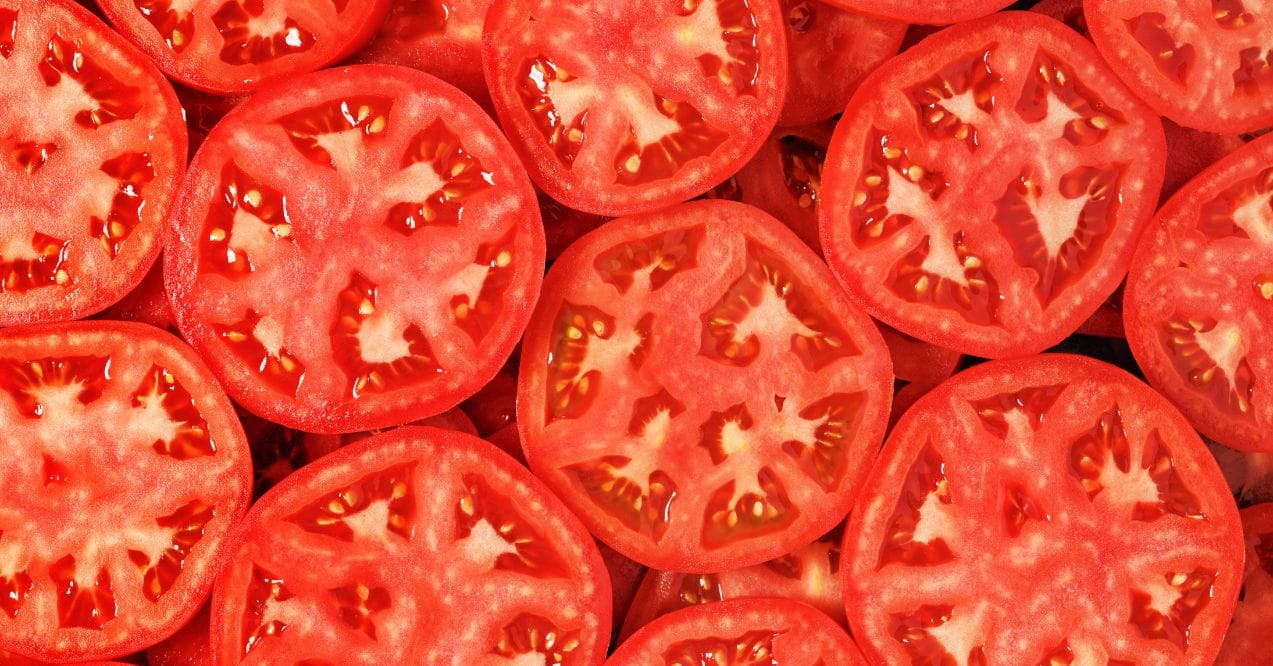Are Tomatoes Bad for Arthritis?
Medically reviewed by our experts


Many individuals experience joint discomfort as they age, and questions about diet’s impact on joint comfort often arise. Tomatoes, members of the nightshade family, have sparked debate among those seeking to maintain joint health. While some enjoy tomatoes without issues, others report increased joint discomfort after consumption. So, are tomatoes bad for arthropathy? Let’s explore this complex relationship.
Key Article Findings
- Individual responses to tomatoes vary significantly
- Scientific evidence linking tomatoes to joint discomfort remains limited
- Systematic food journaling is the best way to determine your personal response
- Balanced anti-inflammatory dietary patterns may be more beneficial than eliminating single foods
The Potential Connection Between Tomatoes and Joint Comfort
The relationship between tomatoes and joint discomfort involves complex biological mechanisms that may affect some individuals but not others. But do tomatoes aggravate arthritis? The answer isn’t straightforward and depends on individual responses.
Tomatoes contain compounds that some theories suggest might trigger responses in sensitive individuals:
- Solanines and alkaloids that may influence inflammatory pathways
- Lectins that some research suggests could affect gut permeability
- Natural glutamates that might sensitize pain receptors in certain people
This reaction isn’t an allergy but rather a food sensitivity – a more subtle response that can develop over time and potentially contribute to joint discomfort hours or days after consumption.
Anecdotal reports often mention improved comfort after removing nightshades like tomatoes from their diet. However, scientific evidence remains limited, with few controlled studies directly examining this connection.
It’s important to consider that tomatoes exist within broader dietary patterns. When people report improvements after eliminating tomatoes, we must remember that correlation doesn’t necessarily indicate causation. Other simultaneous dietary changes or natural fluctuations in joint comfort may contribute to perceived benefits.
Dietary Approaches That May Support Joint Comfort
Many wonder, do tomatoes cause inflammation in joints? While individual responses vary, many health professionals recommend focusing on balanced dietary patterns rather than simply eliminating foods. The Mediterranean diet, rich in whole foods, has been associated with reduced markers of systemic discomfort despite including tomatoes.
Foods that may help fight inflammation and support joint health include:
- Fatty fish rich in omega-3 fatty acids (salmon, mackerel, sardines)
- Fresh fruits and vegetables with vibrant colors
- Nuts and seeds (particularly walnuts and flaxseeds)
- Olive oil as a primary fat source
- Herbs and spices with anti-inflammatory properties
While dietary modifications can support joint health, some find additional benefit from targeted nutritional support. Joint Complex strategic formulation helps revitalize your body’s joint-supporting nourishment with six premium quality ingredients that promote optimal joint function and flexibility. The formula features NEM® Egshell Membrane, which supports cartilage maintenance, and Boswellia Serrata, traditionally used to maintain comfortable joint movement.
These natural ingredients complement anti-inflammatory dietary approaches by providing concentrated compounds that support the body’s natural comfort mechanisms and maintain healthy joint structure.
Determining If Tomatoes Affect Your Joint Comfort
If you’re wondering, can tomatoes cause joint pain in your specific case, systematic self-assessment may provide personal insights. Many people with arthritis or similar joint conditions benefit from methodical dietary experiments rather than random elimination.
A strategic approach to determine are tomatoes bad for your joints:
- Food journaling – Document daily food intake and joint comfort levels for 2-3 weeks to establish baseline patterns
- Single-food elimination – Remove only tomatoes (and tomato-based products) for 3-4 weeks while maintaining other dietary habits
- Careful reintroduction – Add tomatoes back gradually, noting any changes in joint comfort
- Preparation testing – If sensitivity is suspected, test different preparation methods – some find cooked tomatoes more tolerable than raw ones
Additionally, pay attention to portion sizes – some individuals tolerate small amounts of tomatoes but experience discomfort with larger quantities. Also consider tomato concentration in different foods (fresh tomatoes versus concentrated tomato paste).
Many individuals exploring the tomato connection also investigate gluten and joint pain relationships using similar methodical approaches. This systematic testing helps identify personal triggers beyond just nightshades.
The bottom line – Your body’s response is unique. Systematic experimentation provides personalized insights that generic recommendations cannot offer. Be patient – dietary changes typically require several weeks to reveal meaningful patterns.
Conclusion
So, are tomatoes bad for arthritis? The answer varies by individual. While some report improved joint comfort when limiting nightshades, scientific research remains inconclusive. Take a thoughtful, systematic approach to dietary modifications while maintaining nutritional balance. Consult healthcare providers before significant dietary changes, especially if you have ongoing joint concerns. Your personal experience ultimately provides the most relevant answer for your unique situation.
Tomatoes don’t cause joint conditions. While some individuals report increased joint discomfort after consuming tomatoes due to their solanine content, there’s limited scientific evidence confirming a direct relationship. Individual responses vary significantly, making personal experimentation the best approach to determine your own sensitivity.
Not necessarily. Individual responses to tomatoes vary widely. Some people report improved joint comfort when limiting tomatoes, while others notice no difference. The best approach is systematic elimination and reintroduction while tracking your symptoms to determine your personal response.
Onions contain quercetin and sulfur compounds that support the body’s natural inflammatory response. Many people find these properties beneficial for joint comfort. As with any food, individual responses vary, but onions generally align with dietary patterns associated with joint health.
Aryal, B., et al. (2022). Potential Therapeutic Applications of Plant-Derived Alkaloids against Inflammatory and Neurodegenerative Diseases. Evidence-based Complementary and Alternative Medicine, 2022, 1–18.
Freed, D. L. J. (1999). Do dietary lectins cause disease? BMJ, 318(7190), 1023–1024.
Masuoka, T., et al. (2020). Sensitization of glutamate receptor ‐mediated pain behaviour via nerve growth factor‐dependent phosphorylation of transient receptor potential V1 under inflammatory conditions. British Journal of Pharmacology, 177(18), 4223–4241.
Kurowska, A., et al. (2023). The role of diet as a modulator of the inflammatory process in the neurological diseases. Nutrients, 15(6), 1436.
Harvard Health. (2024). Foods that fight inflammation.
Ruff, K. J., et al. (2009). Eggshell membrane in the treatment of pain and stiffness from osteoarthritis of the knee: a randomized, multicenter, double-blind, placebo-controlled clinical study. Clinical Rheumatology, 28(8), 907–914.
Kumar, B., et al. (2024). A Standardized Boswellia serrata Extract Improves Knee Joint Function and Cartilage Morphology in Human Volunteers with Mild to Moderate Osteoarthritis in a Randomized Placebo-Controlled Study. Journal of the American Nutrition Association, 1–12.
Popular Articles
Advertisement. This site offers health, wellness, fitness and nutritional information and is designed for educational purposes only. You should not rely on this information as a substitute for, nor does it replace, professional medical advice, diagnosis, or treatment. If you have any concerns or questions about your health, you should always consult with a physician or other health-care professional. Do not disregard, avoid or delay obtaining medical or health related advice from your health-care professional because of something you may have read on this site. The use of any information provided on this site is solely at your own risk.







